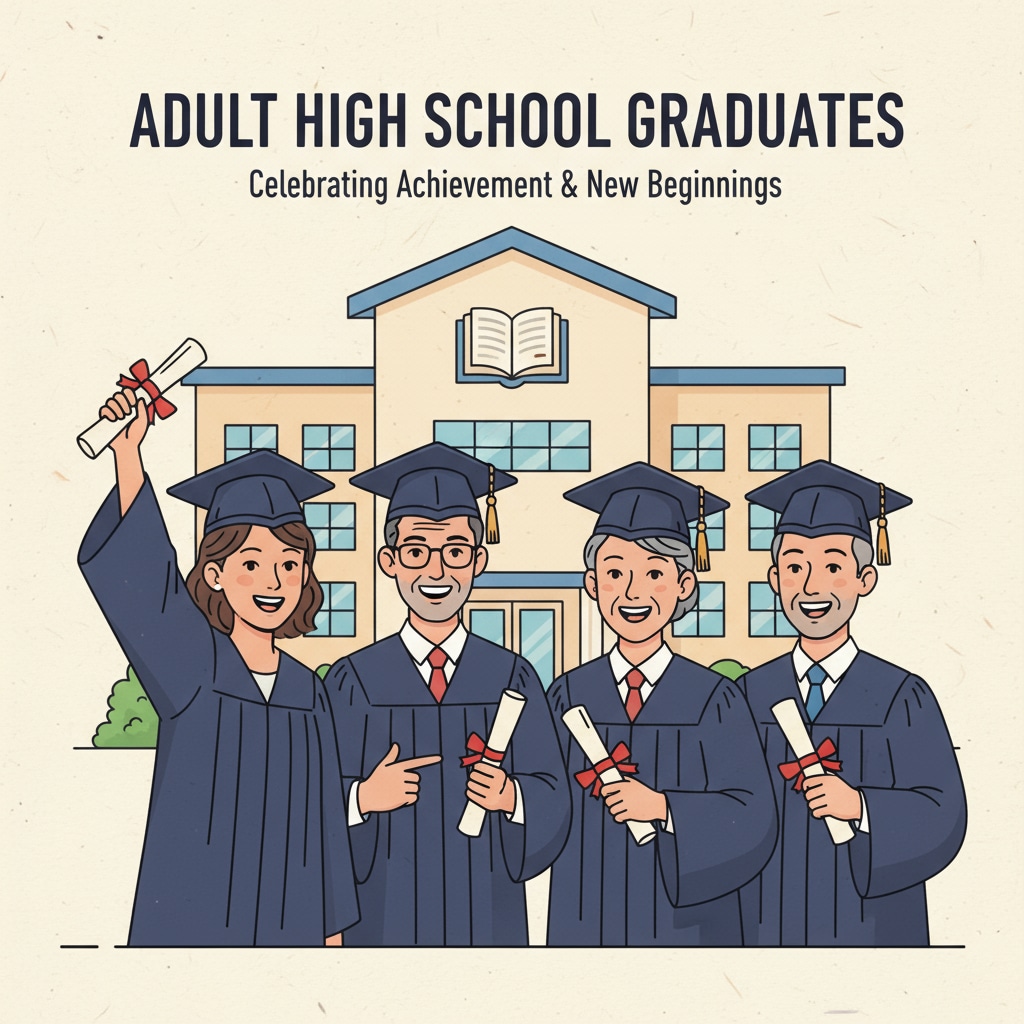Adult education, high school diploma, and college entrance are significant topics for individuals who wish to restart their educational journey. Many adults, for various reasons, did not complete high school but now aspire to pursue higher education. This article aims to explore the different avenues available for adults to obtain a high school diploma and the subsequent choices for college entrance.

The Quest for a High School Diploma
For adult learners, the journey to a high school diploma can be both challenging and rewarding. There are several options to consider. One common route is through the General Educational Development (GED) test. The GED is a high school equivalency test that assesses an individual’s knowledge in four subject areas: language arts, social studies, science, and mathematics. It offers a quicker way for adults to demonstrate high school-level proficiency. However, some institutions may view a GED as less prestigious than a traditional high school diploma.
On the other hand, adult high school diploma programs provide a more comprehensive educational experience. These programs typically involve attending classes, either in-person or online, and completing coursework over a period of time. This allows adults to learn at their own pace and gain a more in-depth understanding of various subjects. As a result, they may be better prepared for college-level studies.

College Entrance Considerations
Once an adult has obtained a high school diploma or its equivalent, the next step is to explore college entrance options. Many community colleges and vocational schools are more flexible in their admission requirements and are often welcoming to adult learners. These institutions offer a wide range of programs, from associate degrees to vocational training, which can enhance employability. In addition, some four-year universities also have special admission programs for adult students.
When applying to college, it’s crucial for adults to highlight their life experiences and any relevant work skills. This can set them apart from traditional high school graduates. Moreover, they may need to take placement tests to determine their academic readiness. By doing so, they can ensure they are placed in the appropriate courses.
In conclusion, adult education provides a second chance for individuals to obtain a high school diploma and pursue college entrance. Whether choosing the GED route or an adult high school diploma program, the key is to find the option that best suits one’s needs and goals. With careful planning and dedication, adults can successfully embark on their educational journey and achieve their dreams. Adult education on Wikipedia and Adult education on Britannica offer more in-depth information on this topic.
Readability guidance: This article uses short paragraphs to clearly present information. Each H2 section has a list of key points. The passive语态 is kept to a minimum, and transition words like “however”, “on the other hand”, “in addition”, and “moreover” are used to make the text flow smoothly.


